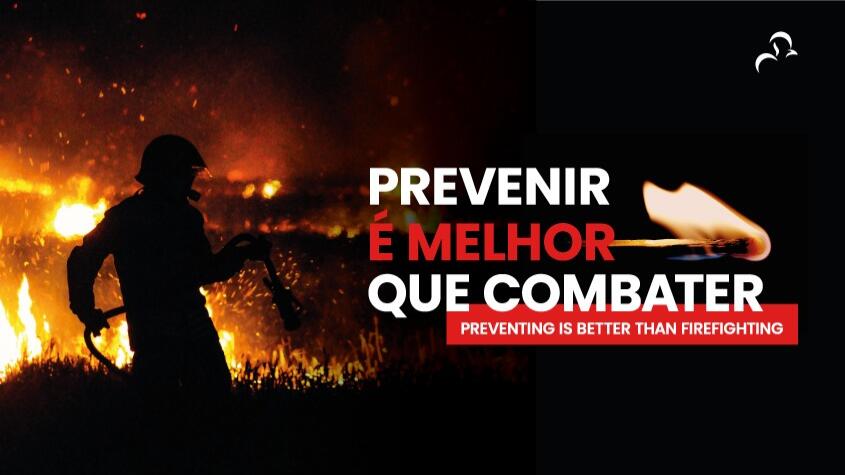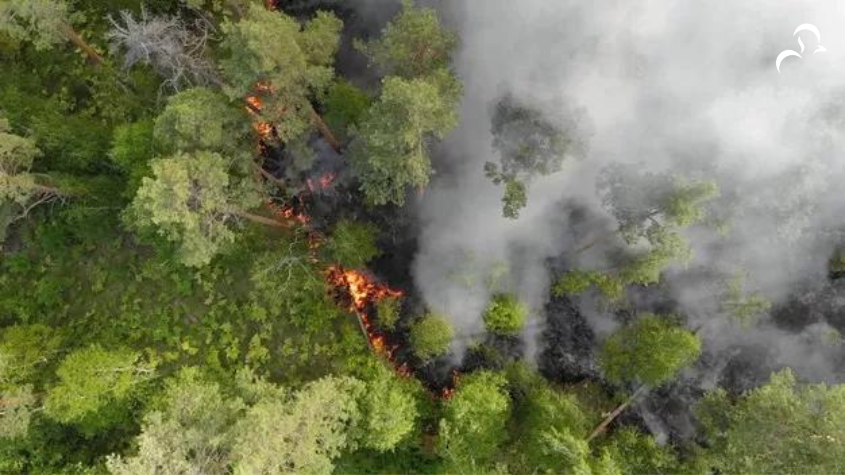
How to Prevent and Protect Against Forest Fires?
Forest fires are one of the main catastrophes in Portugal.
Its causes are varied, but a large part is due to human carelessness, with the negligent use of fire, according to the GNR.
For this reason, protecting the forest starts with all of us!
It is very important that each one of us plays a role in preventing forest fires. The National Civil Protection Authority appeals to immediately notify the authorities, 112 or the local Fire Brigade, if:
• observe garbage or dense weeds accumulated near dwellings;
• noticing the presence of people with risky behavior;
• sighting the start of a forest fire.
The impact after a wildfire is dire, but the negative effects on future sustainability and community well-being may not be immediately visible. However, in the long term, the consequences can be much greater than those observed at the moment.
The area burned in Portugal until April 2022, according to the Institute for the Conservation of Nature and Forests, was 8,577 hectares of burned national territory, 79% of scrubland and 20% of forest stands.
Forest fires are thus one of the main threats to the sustainability of forest biodiversity. Not only do they cause forest degradation, but they also unbalance the supply of resources, goods and services of an environmental nature, but also economic and social.

Prevention measures and how to act in case of forest fires
Firefighting should be left to professionals, but in compliance with safety rules, there are preventive measures that we can and should follow if you have a home close to a forest or even when you go for a walk in the forests.
If you live near a forested area:
• Keep the weeds clean around your home;
• Separate crops with fire barriers (like paths, e.g.);
• Store flammable products (firewood, diesel) in a safe and isolated place;
• Keep combustible materials (wood, paper, clothing) away from candles and oil or gas lamps;
• Never leave children alone at home or under lock and key, or let them play with matches or lighters.
• Make, with the family, an evacuation plan for your home and a meeting point and/or way of contact to avoid being separated during a fire.
If you go for a walk in the forest or bush:
• Do not light fires, take an already prepared meal from home and do not throw garbage on the floor;
• Do not throw lighters, matches, cigarettes or ash onto the floor (or from the car window), even if they seem completely extinguished;
Civil Protection also warns that bonfires can only be made in designated and signposted places, with the following special precautions:
• Remove dry leaves;
• Make a circle of stones around the fire:
• Wet the surrounding area well;
• Keep a container of water nearby;
• Watch the bonfire always and attentively;
• Erase very well with water and earth;
• Never make bonfires on windy days;
• Never leave any rubbish in the forest.
How to act in case of fire:
Some measures and actions that must be taken in case of fire according to Civil Protection and GNR:
• Do not panic, try to leave the area in the opposite direction to the wind;
• Don't run uphill, smoke and flames tend to rise;
• Avoid standing in places with a large accumulation of fuel or in points located in the direction of the fire;
• Look for an area with water or little vegetation or already burned;
• If you are surrounded by fire, try to protect yourself from the radiation by lying on the ground behind a large rock, a log or in a depression covering yourself with earth;
• If possible, protect your face with a wet cloth, as this makes it easier;
If you find yourself in a house in the forest and the fire prevents you from escaping, you should:
o Leave the hoses open, directing the water to the roof and surrounding vegetation;
o Close doors, windows, blinds and turn off gas and electricity;
o Stay in the safest place in the house;
o If the situation gets complicated and you have to go out, cover most of your body, if possible with wet clothes, to protect yourself from the heat.
If you are in a vehicle and are surrounded by fire:
o Do not drive blindly through smoke, turn on lights and flashers;
o Search in advance for an exit path;
o Close the windows and look for an area without vegetation or already burned;
o If the vehicle catches fire, get out immediately, covering most of your body;
Very important!
Protect the forest from fires, we all have an important role in protecting the environment and biodiversity. At Living Tours we carry out several actions throughout the year in favor of the well-being and environmental harmony with the community. Find out about our actions in favor of sustainability.
Ready to become a Hero? Start today, like us at Living Tours, to make a positive impact on society and the environment.
Together we are stronger!
Did you like it?
Average votes: 3.71 of 5
Go Back to the Blog












